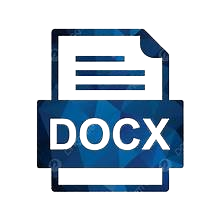TINJAUAN YURIDIS PENEGAKAN HUKUM PIDANA KEKARANTINAAN KESEHATAN DALAM PENANGGULANGAN WABAH COVID-19 DI KOTA MEDAN
DOI:
https://doi.org/10.35447/jph.v3i2.614Keywords:
Covid-19, Health Quarantine, law enforcementAbstract
Law enforcement aims to improve order and legal certainty in society. As a form of efforts to achieve a comprehensive rule of law in law enforcement, especially when a certain virus outbreak or pandemic occurs, the Government together with the House of Representatives of the Republic of Indonesia. The role of the government and the community in the successful implementation of the Emergency Community Activity Restriction (PPKM) is in line with how the role is in the fulfillment of rights and obligations. The research method in this study is a normative legal approach. The main object is the norms or rules of positive legal rules that regulate criminal law policies as an effort to overcome the Covid-19 emergency. The criminal law enforcement process against perpetrators of health protocol violations in the city of Medan is in accordance with Law Number 6 of 2018 concerning Health Quarantine, however the government has not fully fulfilled the rights of the community during the implementation of large-scale social restrictions (PSBB) and the implementation of restrictions on community activities (PPKM). ). The role of the people of Medan City in dealing with Covid-19 and compliance with PPKM is still considered low. Based on data from the Medan City Government, the number of violations of the Covid-19 health protocol in Medan City is increasing. The latest data, from July 15 to August 09, 2021, as many as 52 people who violated health protocols (prokes) during Emergency PPKM and Level 4 PPKM in Medan City. The 52 people are non-essential, namely business actors and traders and have undergone a trial for minor crimes.
Downloads
References
Undang-Undang Nomor 4 Tahun 1984 Tentang wabah Penyakit Menular.
Undang-Undang Nomor 24 Tahun 2007 Tentang Penanggulangan Bencana
Undang-Undang Nomor 6 Tahun 2018 Tentang Kekarantinaan Kesehatan.
Peraturan Pemerintah Nomor 40 Tahun 1991 Tentang Penanggulangan Wabah Penyakit Menular.
Imendagri Nomor 15 tahun 2021 tentang PPKM Darurat Covid-19
Pergub Nomor 34 Tahun 2020 Tentang Penegakan Disiplin dan Penegakan Hukum protokol Kesehatan dalam Pencegahan dan Penggendalian Covid-19 Di Provinsi Sumatera Utara
Perwali Nomor 34 Tahun 2020 perubhan atas Perwali Nomor 27 Tahun 2020 Tentang Pelaksanaan Adaptasi Baru Pada Kondisi Pandemi Corona Virus 2019 (Covid-19) di Kota Medan
Sugianto, F. (2013). Economic Approach to Law, AnalisisKeekonomian Tentang Hukum. Kencana Prenada Media Grup.
Suhariyano, A. (2009). Penentuan Sanksi Pidana Dalam Suatu Undang-Undang. Jurnal Legislasi Indonesia, 6(4).
WHO. (2020). No Title. https://www.who.int/health-topics/coronavirus#tab=tab_1
Hikmahanto Juwono, 2006, penegakan hukum dalam kajian Law and Development: Problem dan Fundamen bagi solusi di Indonesia, Jakarta: Varia Peradilan No.244.
H.T. Ahmad Dedek, dkk, 2020, Politik hukum, bencana Indonesia, Aceh: Syiah Kuala University Press.
Soemitro, Ronny Hanitijo, 1988, Metodologi Penelitian Hukum dan Jurimetri, Jakarta: Ghalia Indonesia.
Hukumonlinehttps://www.hukumonline.com/berita/baca/lt5e7f1443c6534/masalahhukum-penetapan-status-bencana-nasional-covid-19?page=3 diakses tanggal 05 Oktober 2021
Downloads
Published
How to Cite
Issue
Section
License
Authors who publish with this journal agree to the following terms:
- Authors retain copyright and grant the journal right of first publication with the work simultaneously licensed under Creative Commons Attribution 4.0 International License that allows others to share the work with an acknowledgment of the work's authorship and initial publication in this journal.
- Authors are able to enter into separate, additional contractual arrangements for the non-exclusive distribution of the journal's published version of the work (e.g., post it to an institutional repository or publish it in a book), with an acknowledgment of its initial publication in this journal.
- Authors are permitted and encouraged to post their work online (e.g., in institutional repositories or on their website) prior to and during the submission process, as it can lead to productive exchanges, as well as earlier and greater citation of published work (Refer to The Effect of Open Access).









